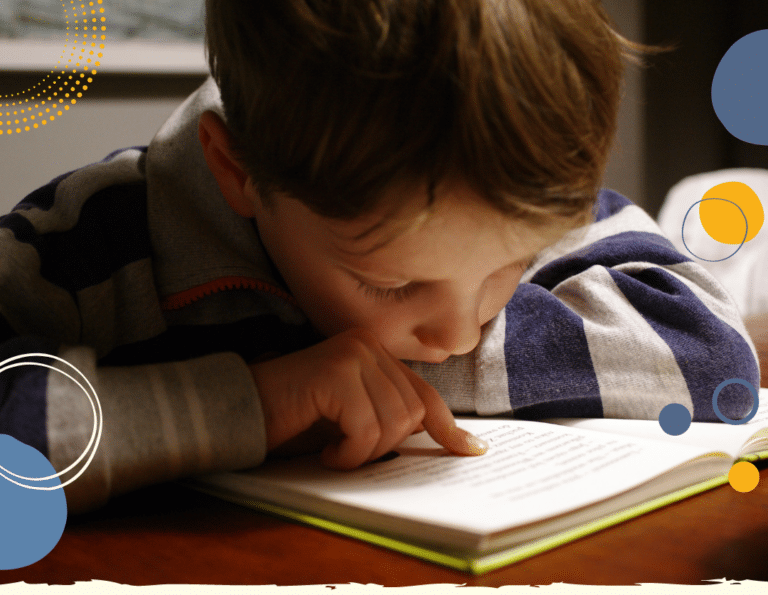Encouraging your child to read books: what works?
We all know how important it is to encourage our child to read books. Reading for pleasure is associated with many benefits in later childhood, including higher attainment scores at school, a broader vocabulary and increased general knowledge.
Indeed, studies have linked reading for pleasure to fewer behavioural problems, better empathy, decreased stress and better attention skills (although it is important to note that these are correlational links and not necessarily causational – it might be that children who are less inattentive and have fewer behavioural problems are more likely to read, rather than the other way around).
Good literacy skills underpin learning in our education system. Children who enjoy reading tend to read more – and the more you practice a skill the better you get at it. So, encouraging your child to read books (and enjoy reading them!) can only be a good thing.
But how can we do it? Especially in this age of computer games and TikTok videos, when there are lots of exciting demands on children’s attention that seem to offer quicker payoffs than settling down with a book.
There is no single method that is guaranteed to tempt your child to read books more often, but there are definitely things you can do that will help create a family culture in which books are valued and enjoyed. Here are few ideas you might consider:
Let them see you reading for pleasure. Children tend to copy the behaviour they see, so make sure they see you sitting down, relaxing with a book. Talk about what you are reading and what you are enjoying about it.
Have real books on display and easily accessible. The research on the impacts of using e-readers (rather than physical, hard copy books) is still inconclusive. But when children are young, hard copy books are likely to be a richer learning experience. Placing these at the heart of your home, on display, confers value on books and makes it more likely that children (and parents) will read them.
Carry books as boredom fillers. Rather than always reaching for your phone, carry a book to fill those downtime moments when you are waiting for a train or have a few minutes spare. Carry a book for you and one for your child (this is a great opportunity to model reading for pleasure!).
Let them choose what they read – pleasure is the key word here! Your child might hate the reading books they are given at school but love graphic novels or non-fiction or real-life stories about characters from history. Link reading to their passions and interests if you want your child to read books more often.
Set aside regular reading time in your schedule. I recommend a quiet time in the evening when all devices go off and everyone has a little space to relax and read. Bedtimes work really well for reading but why not experiment with mornings or other times too?
Set up special reading spaces. Many children love cosy reading nooks or dens (I do too!). We have a swing seat in our garden with a handy blanket where I regularly retreat with a book – and the boys did copy me in that. My youngest loved to draw the curtains on his bunk bed and read with a torch in there.
Turn off the tech. Screens are an easy boredom filler so, if these are readily available, it’s no surprise when children turn to their devices instead of books. To encourage your child to read books, put some boundaries around tech and create lots of tech-free spaces in your home and in your daily routine (see Ensuring a Balanced Childhood in the Digital Age).
Chat about what they are reading. Ask what they like/don’t like about the book, whether they would recommend it. Children love our attention, so make sure to positively reinforce when they do pick up a book.
Keep reading out loud and enjoying books together. I know it can feel like a chore, and if you have more than one child (or a reluctant reader), you might be desperate to just leave them to read by themselves, but even older children can really benefit from listening to you read out loud. It also takes the pressure off them (as they don’t feel like they are being judged) and lets them just enjoy being immersed in the story. So keep going as long as you can.
Browse books in charity shops and visit the library. Children love novelty – getting a child to read books is all about getting them excited and engaged. So find ways to change things up regularly (book swaps and second hand book stalls at school fairs are great!).
Make sure the book is the right interest level for them. This is especially important if they are struggling with reading or have fallen behind. Being given babyish books that don’t spark a fire in any way will just put them off reading even more. (If this sounds familiar, check out the brilliant books available from Barrington Stoke for dyslexic and reluctant readers).
And keep trying. Don’t give up just because they don’t seem interested – encouraging your child to read books a bit more often might take time but the benefits are worth it!
Looking for some book inspiration? Check out these booklists:
- Books to inspire children to be adventurous
- Books about multiculturalism in Britain
- Best brave novels to inspire your teenage daughter
Or, if books are a step too far, have a look at these Ideas to boost children’s reading skills without reading books to get them re-started on their reading journey.






